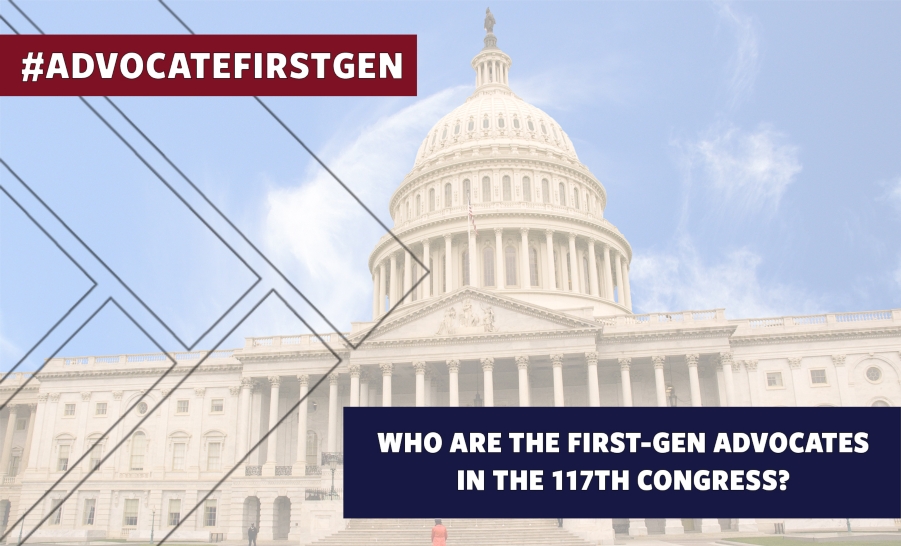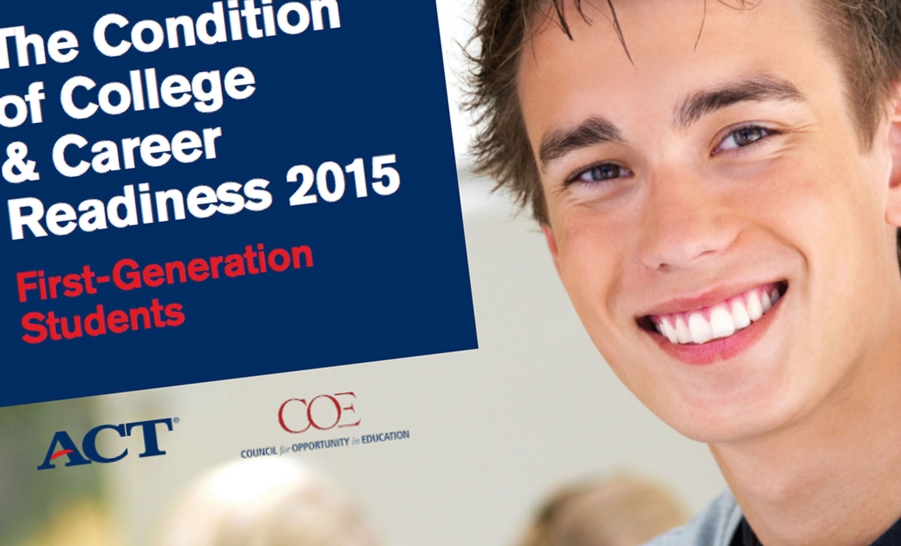Advocacy work includes a variety of approaches, although meeting with legislators is generally the first activity that springs to mind for many people. Engaging elected officials can be an important way to bring attention to how policies or proposed legislation can affect groups of citizens, including first-generation students. Help us identify which members of Congress may have the most affinity for first-generation students and the policies and bills that affect them.
President Biden’s status as a first-generation college graduate, along with that of U.S. Secretary of Education nominee, Dr. Miguel Cardona, will be helpful in advancing policies favorable to first-generation students put forth by the executive branch of government. Identifying first-generation college graduates and allies in Congress is important to advancing legislation that benefits first-generation students.
As we grow the Center’s advocacy efforts, highlighting first-generation identity may be a good way to build a connection with legislators and may lead to greater interest in the substance of a visit or call to action. Elected officials generally prioritize the needs of their constituents–people living in their voting districts. Officials who sit on education-related committees may be more receptive to receiving proposed bill language or comments on education-related legislation if we can identify common ground.
A Guide to the 117th Congress, prepared by Phone2Action, includes a variety of interesting facts about the current Congress. Of note is that all but three members of the current Congress attained college degrees. We’re researching which U.S. Senators and members of the House of Representatives are first-generation, but not all list this status in their official profiles. As we build a base of potential supporters and allies on issues of importance to first-generation students, we’re asking for your help in identifying whether or not your representative(s) is a first-generation graduate.
If you know that your U.S. Representative or Senator is a first-generation graduate, please complete this short form and share their information with us. Identifying potential advocates on issues important to first-generation students will allow the Center to #AdvocateFirstgen from a stronger position.
First-generation students are affected by a variety of federal policies including setting the amount of the Pell grant, federal loans, funding for federal TRIO programs, and COVID-19 relief legislation. Meeting with lawmakers can be an effective strategy for higher education professionals and first-generation students, providing them with the opportunity to share the positive or detrimental impact of specific legislation or policy on first-generation students. As our advocacy efforts develop, your help in identifying potential supporters of first-generation students will enable us to equip you with tools to engage with your representatives on issues important to first-generation student success.
What strategies have helped you to successfully champion first-generation students? Share your perspective on first-generation student advocacy and pertinent policy issues across social media with #AdvocateFirstgen.





